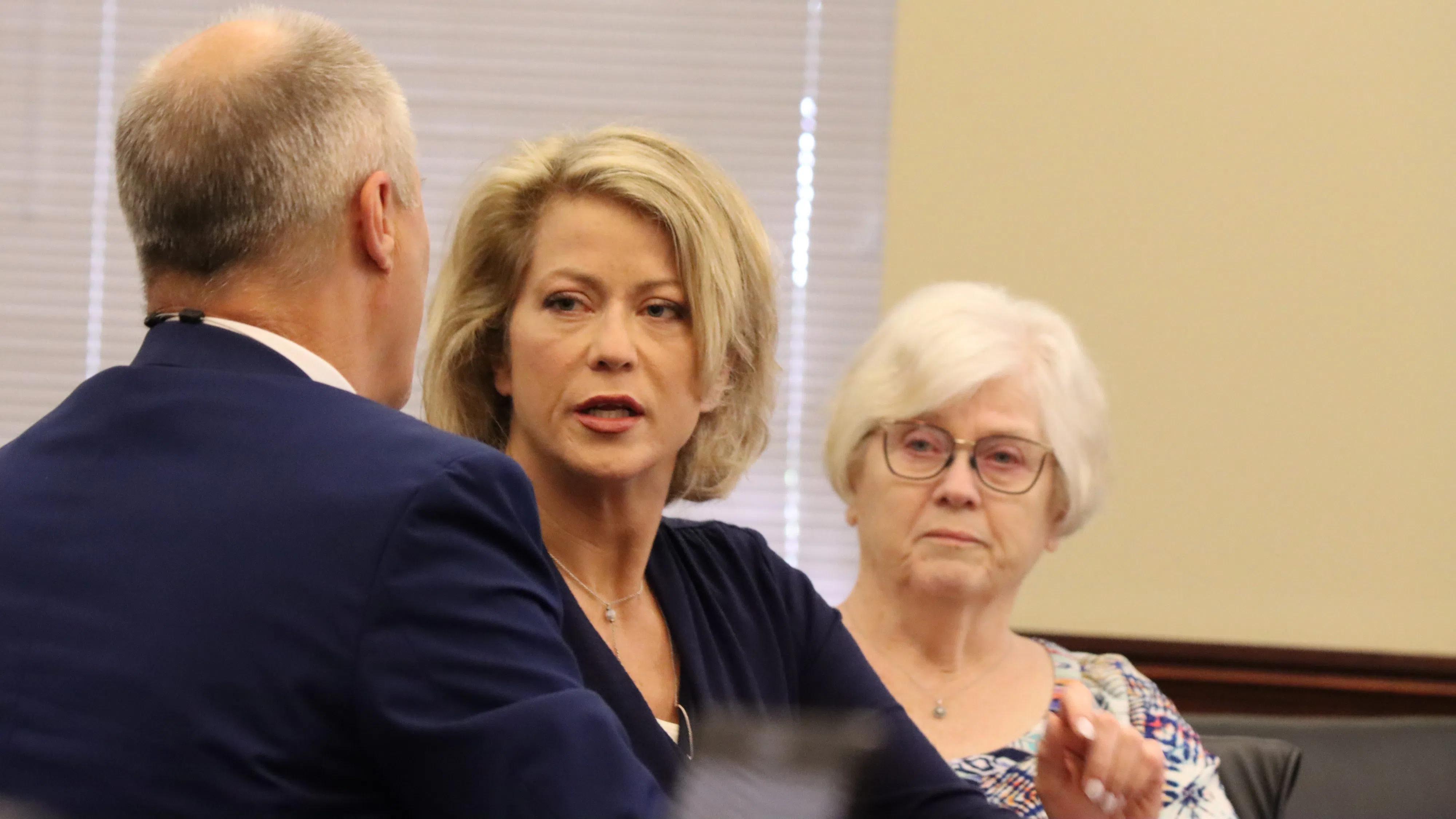By MELINDA J. OVERSTREET
for Glasgow News 1
A trial for his alleged killers that had been scheduled to begin on the third anniversary of the death of Michael “Mickey” O. Logsdon may not happen now, because the prosecutor on the case has requested that the murder charges against the mother-and-daughter defendants be dismissed.
In November 2022, one of Logsdon’s two daughters, Cheryl Leighanne Bennett, was charged with murder in connection with her father’s death, but when information was presented to a Barren County grand jury in January 2023, the panel decided to return an indictment not just against her, but also against her mother, Donna Cheryl Logsdon.
Mickey Logsdon had been diagnosed with amyotrophic lateral sclerosis, better known as ALS or as Lou Gehrig’s disease, which had led him to have difficulty breathing. The indictments alleged that each of the women, “acting alone or in cooperation with another, committed the crime of murder when she or an accomplice unlawfully killed Michael Logsdon by turning off his BiPAP machine, which he needed to breathe.”
Reports among the court documents have indicated the belief that the machine was turned off not just once, but multiple times over the course of the night in question. The device was a ResMed Aircurve 10, according to a motion filed by Wednesday by Blake Chambers, the special prosecutor on the case appointed in March 2024. In that motion, he states that the evidence the machine was being turned off consisted of records of “usage” transmitted by the machine to Gould’s Medical/Adapthealth, a medical equipment company.
After having the opportunity to examine the device in evidence in March 2024 and subsequently taking other steps to get data from the machine and its data-storage card analyzed and interpreted by the people best qualified to do so, Chambers states in the motion that he took steps to contact the manufacturer, ResMed, and have a functionality test performed on the machine, which occurred in September, and it was found to be fully functional. The SD card, however, had limited information apparently caused by the fact that the machine had been turned on last March.
The technicians were able to retrieve and provide certain records that were downloaded from the hardware of the device, such as cellular access module engineering logs, daily event logs and application errors. The technicians advised him, however, that any interpretation of that information would have to come from someone “higher up” in the corporation.
“The Commonwealth then began a months long inquiry to ResMed through its legal representation to have said records interpreted and a witness available at trial for the same,” Chambers wrote. “Finally, on May 5, 2025, the Commonwealth was able to take part in a virtual meeting.”
Through attending that meeting and receiving more information about what the different types of data actually indicated, Chambers learned:
– that the CAM engineering logs cannot be generated or transmitted to outside towers from a device that is powered off, but it appears the device was transmitting CAM data during the relevant time period;
– usage time refers to the time the device is not only powered on but also functioning and providing therapy, so the device could be on but not be recording “usage;
– the device can still show usage after a person is deceased based on postmortem body movement, whether natural or done by someone else, which could account for long periods of “usage” after a patient has died;
– there were two other indicators that the device was powered on during the relevant time period and no system or application errors were recorded during that time.
Also, during that virtual meeting, Chambers was informed that the individuals with whom he was talking may have software that would be able to gather more data from the SD card, and they requested a copy of it.
“That occurred, and on May 13, 2025, the Commonwealth had a phone call with legal counsel from ResMed who informed the Commonwealth it would be the assertion of ResMed that the contents of the SD card indicate the device remained powered on during the relevant time period,” Chambers wrote.
He added that he believed that this information tended to clear the defendants of guilt, at least based on the wording of the indictment, which is the formal charge, and he had informed the defense team of this. He wrote that, based on this contradictory information, it was his ethical obligation to move for dismissal without prejudice because he felt the action – based on the theory that the death was caused by an individual powering off the device – was no longer supported by probable cause.
A dismissal without prejudice, means the circumstances surrounding Logsdon’s death still could be revisited later, or as Chambers put it, “it allows for the Commonwealth to present any further evidence or information of crimes related to this death investigation should it arise in the future” to a grand jury.
Chambers also noted that there is civil litigation related to these cases and other records may exist that are unknown to him at this time.
A pretrial conference had already been scheduled for Friday, so it is anticipated that this motion will be addressed during that proceeding.
Even if the current murder charges against Bennett and Logsdon are dismissed, Bennett still has another, unrelated 2022 case pending against her that would have been tried simultaneously with the murder cases. That one alleges first-degree possession of methamphetamine, third or greater offense; buying or possessing drug paraphernalia; and public intoxication from a controlled substance other than alcohol.

Comments